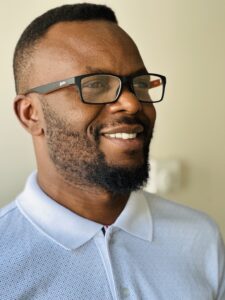The countries and population groups that have contributed least to climate change are suffering most from it. Climate justice is about redressing the balance.
Text: Dietmar Schobel
“Over the past 25 years, the richest 10 percent of the global population have been responsible for more than half of all carbon emissions, and the poorest 50 percent were responsible for just seven percent of emissions. Rank injustice and inequality of this scale is a cancer,” United Nations Secretary-General Antonio Guterres said in 2020 when the global initiative Countdown was launched. It aims to cut greenhouse gas emissions in half by 2030 and achieve net-zero emissions by 2050.
The countries of the Global South, which bear the least responsibility for climate change, are often the most severely affected by its consequences, such as an increase in heatwaves, wildfires, droughts, hurricanes, landslides and floods. Carbon dioxide emissions in the sub-Saharan countries in Africa, in South and Southeast Asia and in India, for example, are below the threshold of an average 1.61 tonnes of CO2 emissions per capita per year that would need to be maintained to achieve the goal specified in the Paris Climate Agreement of limiting the average increase in global temperature to a maximum of 1.5 degrees Celsius by 2100. This threshold is being significantly exceeded in China, Russia, Central Asia and Europe. In the United States, the average per capita CO2 emissions are especially high at 14.5 tonnes per year.
92 percent of emissions come from the Global North
According to an article published in the medical journal The Lancet on 1 July 2023, over the period 1850–2015 the countries of the Global North were responsible for “92 percent of historical carbon dioxide emissions in excess of the safe planetary boundary”. In the interest of climate justice, wealthy countries are therefore called upon to implement significant climate protection measures both rapidly and intensively, while simultaneously compensating the poorer countries of the world – for example, through debt cancellation, giving land back to communities, unconditional grants or similar measures.
“Migration policies in England and other European countries have become increasingly inhumane.”
DENIS ONYANGO, PROGRAMMES DIRECTOR AT THE AFRICA FOUNDATION IN ENGLAND

There is likewise a need to redress the balance between privileged and disadvantaged population groups in all countries of the world. On the whole, marginalised groups such as migrants, refugees, ethnic minorities and generally people with relatively low income and education levels contribute least to climate change. Yet they often suffer most from it. “These population groups frequently live in environments where the noise and air pollution is especially severe, and there is also very little green space,” says Denis Onyango, Programmes Director at the Africa Advocacy Foundation in England, which assists migrants and refugees in matters relating to health and welfare.
In recent years, he has noticed an increase in refugees from Africa who have left their home countries due to changing climate conditions. “They migrate to us because climate change caused by humans, and primarily by the countries of the Global North, has made life and survival in their home countries impossible. At the same time, migration policies in England and other European countries have become increasingly inhumane,” Denis Onyango points out, adding: “I would like to see Europe showing the same compassion towards refugees from Africa and other parts of the world who have been displaced by climate change and conflicts as it has demonstrated towards refugees from Ukraine.”
THE NOBODY LEFT OUTSIDE INITIATIVE
The Nobody Left Outside (NLO) initiative, to which the Africa Advocacy Foundation belongs, is a collective of organisations representing people in some of the most marginalised communities in Europe who are underserved with respect to healthcare. These communities include homeless people, LGTBI people, people who use drugs, prisoners, sex workers and undocumented migrants. People in these communities are at a significantly higher risk of poor health than the general population and are often in highly vulnerable situations.
